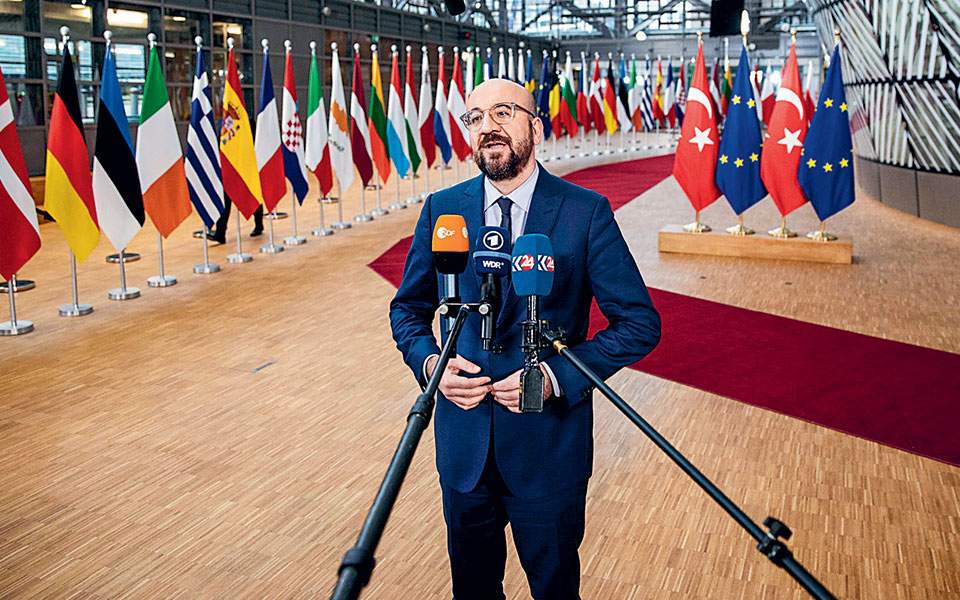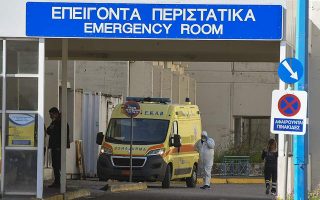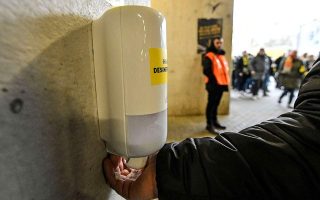‘Corona bonds’ issue placed on the table

Nine European Union countries, including Greece, have requested in a letter to European Council President Charles Michel that the bloc issues a Eurobond to combat the economic impact of the coronavirus pandemic.
Apart from Prime Minister Kyriakos Mitsotakis, the letter was signed by French President Emmanuel Macron, Spanish Prime Minister Pedro Sanchez and the Prime Ministers of Italy, Portugal, Belgium, Ireland, Slovenia and Luxembourg.
The letter requesting the so-called “corona bonds” – a new debt instrument that would combine securities from different countries – came at the initiative of Italy and Spain. Greece was reportedly the last country in the South to join the initiative.
“We need to work on a common debt instrument issued by a European institution to raise funds on the market,” said the letter dated Wednesday and before Thursday’s third video conference on the coronavirus by European leaders.
“This common debt instrument should have sufficient size and long maturity to be fully efficient and avoid rollover risks now as in the future,” said the letter to Michel, adding that other tools should be explored, “like a specific funding for corona-related spending in the EU budget” for 2020 and 2021.
On Tuesday, European Central Bank President Christine Lagarde had reportedly asked eurozone finance ministers to consider a one-off joint debt issuance of “corona bonds” to assist with the coronavirus pandemic.
However, the proposal was opposed by Northern countries. Finland, in particular, vehemently rejected the idea, while the Netherlands and Germany were also negatively predisposed, with German Economy Minister Peter Altmaier saying on Monday that “the debate about Eurobonds is a phantom debate.”
Meanwhile, Greece’s Health Ministry representative Sotiris Tsiodras announced 78 new coronavirus cases on Wednesday, bringing the new total number to 821.
The death toll has risen to 22 with two new deaths, he said. Of the 134 people in hospital, 53 are in intensive care, Tsiodras said, adding that 36 patients have recovered. Health authorities have conducted more than 10,000 tests, he said.
So far, there has been no steep escalation in the number of confirmed cases but Tsiodras warned however that communities that take the measures in place lightly do so at the risk of contributing to a rapid spread of the virus.
At the same time, the village community of Echinos in Thrace, northern Greece, was placed on lockdown until April 7 as of Wednesday afternoon after an unusually high number of infections was recorded.
Deputy Civil Protection Minister Nikos Hardalias said nine people from the wider area had tested positive in the last six days, including a 66-year-old man from Echinos who died in a Xanthi hospital Wednesday.





